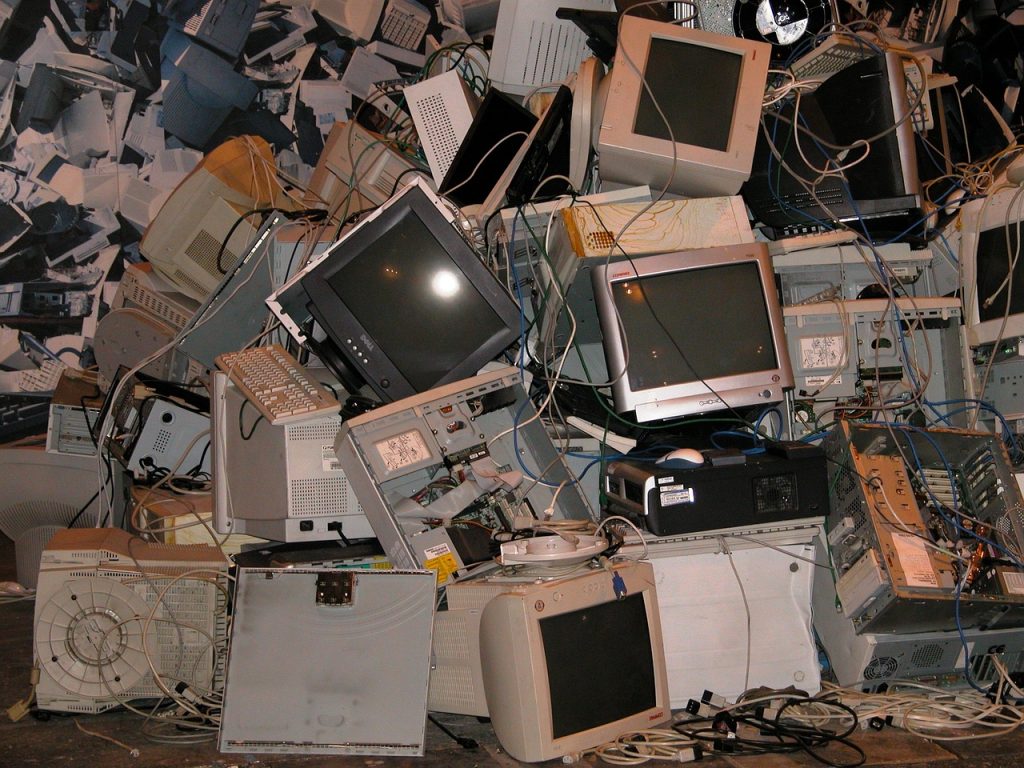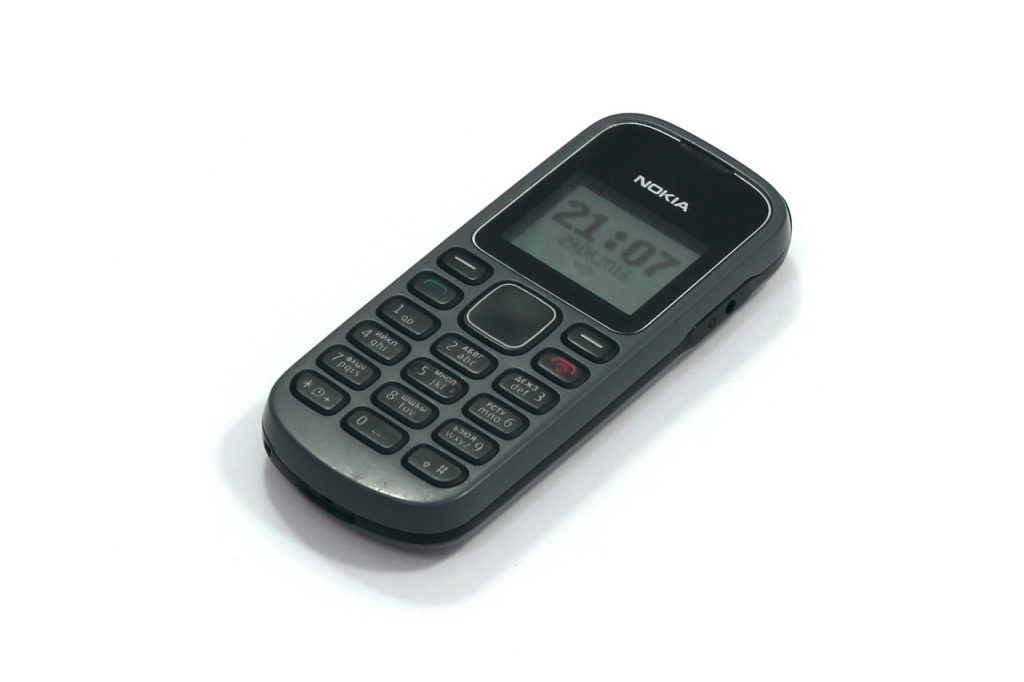- Research recycling centers or apps for safe disposal of electronics.
- Perform data erasure on your devices to protect personal information.
- If the device is still functional, consider donating it to schools, non-profits, or low-income families.
- For non-functional devices, use a certified e-waste recycler for proper disposal.
Understanding the Importance of Electronics Recycling for a Sustainable Future
Our world is dependent on electronics, and it’s critical we understand the importance of recycling electronics as we strive for a sustainable future. Electronics recycling is not just beneficial—it’s crucial because electronic waste is rapidly accumulating and contributing to environmental pollution. Electronic devices are often built with harmful elements such as lead, mercury, and cadmium, which can cause significant environmental harm and health issues if they end up in landfills. Through electronics recycling, we can reduce, repurpose, and recycle electronics safely, eliminating the risk of harmful materials entering our environment.
Just imagine the impact if we all learned how to recycle old electronics at home. E-cycle Wisconsin and CalRecycle’s electronic initiative represent two examples of regional efforts to propagate electronics recycling. E-cycle Wisconsin has made strides in making recycling opportunities more accessible across the state and educating the public about recycling law, while CalRecycle’s electronic program is California’s solution for safe and legal disposal of electronic waste. Laws like the recycling law is designed specifically to manage electronic waste, ensuring it does not end up in landfills. These initiatives not only make it easier for people to recycle electronics from the comfort of their homes but also promote the reduction of electronic waste, propelling us toward a more eco-conscious society.
Electronic devices aren’t only a concern once they’re deemed waste, but their entire lifespan raises environmental worries. The manufacturing of electronic devices requires raw materials and energy, contributing to pollution and the depletion of natural resources. By recycling electronics, we can reclaim some of these materials and use them to produce new electronic devices, reducing the need for virgin materials.
Fortunately, in today’s progressively digital age, many cities are unlocking more recycling opportunities for everyone, but participation is crucial for success. By complying with the recycling law and taking advantage of the resources provided by E-cycle Wisconsin and CalRecycle’s electronic waste programs, we can collectively contribute to a solution.
So, as you approach your overflowing drawer filled with old electronics, remember: recycling electronics is not just about decluttering—it’s a step towards a sustainable future. Learning how to recycle electronics efficiently, responsibly, and legally (following the recycling law) can make a significant difference. Each of us can do our bit to reinforce the progress being made by the likes of E-cycle Wisconsin and CalRecycle’s electronic initiatives. We just need to seize these recycling opportunities!
By understanding the importance of electronics recycling, you’re joining a vital global endeavor that safeguards our health, caters to our tech needs, and protects our planet. Be part of the solution, not the pollution, and let’s forge a sustainable future with electronics recycling as a key component.
Why We Should Recycle Electronics: A Dive into Environmental Benefits
As we’ve earlier discussed “Understanding the Importance of Electronics Recycling for a Sustainable Future”, now let’s dive in to grasp why we should recycle electronics and explore the environmental benefits. In this era, electronics have become a significant part of our lives. From our smartphones to our kitchen appliances, we’re surrounded by a world of electronics. But these electronics don’t last forever – and that leads to electronic waste. When not appropriately managed, this electronic waste can pose severe problems to our environment.
That’s where the importance of recycling electronics comes into the picture. Electronics recycling is a method through which old electronic appliances are processed for resource recovery. The primary goal of electronics recycling is to prevent the pollution caused by electronic waste. It’s a way of reintroducing the valuable raw materials found in electronics back into the market while keeping toxins out of the ecosystem. We must acknowledge the recycling opportunities that can be utilized to minimize their harmful impact on the environment.
The benefits of recycling electronics are manifold. Firstly, it helps in conserving natural resources. The raw materials extracted in the process can be reused and recycled to manufacture new products. That can result in reduced mining activities, which are often destructive to the environment. Besides, recycled materials always require less energy to process than sourcing raw materials, leading to decreased carbon emissions.
Secondly, recycling electronics aid in waste management. It helps in reducing the electronic waste dumped in landfills. Most electronics contain hazardous substances like lead, mercury, and cadmium. When they’re dumped in the landfills, they can contaminate the air, soil, and water resources. By responsibly recycling electronics, we can prevent this.
Thirdly, electronic waste recycling generates employment. It offers substantial potential for job creation in various recycling and refurbishing tasks. That can significantly contribute to the economy. Lastly, electronics recycling gives us a chance to donate or contribute our old, unused electronics to charities or those in need, thereby promoting a more equitable society.
Therefore, it’s fair to say that every time we recycle, we’re contributing to environmental conservation and human welfare. Having understood why we should recycle electronics, it’s our fundamental responsibility to recycle as many of our old electronics as possible. In return, we reap immense environmental and economic benefits and steer our planet towards a sustainable path. So, let’s not waste any more time and start recycling our old electronics today!
Guide to Recycle Electronics at Home: Basic Steps and Data Erasure
It’s essential to learn how to recycle old electronics at home, especially given how rapidly technological advancements are replacing our TVs, computers, and other electronics. It’s not merely about clearing up space in the home either. There’s a much larger, more substantial environmental aspect to consider. So, how should you go about doing this? Here’s a guide detailing the basic steps of electronics recycling at home and advice on data erasure.
To start, don’t simply dispose of your old electronics with your regular waste. Electronic devices, such as computers and TVs, contain harmful chemicals that can pollute the environment if not disposed of properly. Your first step should be to research recycling apps and local union recycling centres to identify where these items can be taken for safe disposal and recycling.
Before you recycle your computers, TVs, or any other electronics, you need to perform a crucial task – data erasure. Our devices often carry a wealth of data; from our personal and financial information to more general data like search history or saved files. It’s critical to wipe this data away before recycling to prevent it from falling into the wrong hands. There are several data erasure software and apps available which can help you obtain peace of mind by securely removing all information.
After wiping your data, it’s time to recycle. If your device is still in working condition, consider donating it to a school, non-profit, or low-income family. Reuse is often the greenest form of recycling! Not only are you reducing e-waste, but you’re also extending the product’s life cycle. For non-working devices, use a certified e-waste recycler to ensure proper disposal and minimal environmental impact.
Recycling your old electronics at home doesn’t have to be complicated, and with the right advice, it can be a breeze. Remember to wipe clean your devices of all data and information, look for environment-friendly methods to dispose of your old electronics, and embrace the opportunity to aid the community by donating working devices. The importance of recycling cannot be overstated in the pursuit of a more sustainable future.
To conclude, let’s let our homes be the starting point of an electronics recycling revolution. It takes just a few steps to recycle our old computers and TVs at home, and in doing so, we aren’t just creating more room in our households; we’re actively contributing to a more sustainable, cleaner Earth.
Apple and Amazon Reviews on Electronics Recycling Programs: A Comparative Approach
While it’s well known that recycling electronics is crucial for a sustainable future, as we covered previously in “Understanding the Importance of Electronics Recycling for a Sustainable Future,” many of us still have questions about how and where to recycle our old electronics. But fret no more because huge tech corporations, like Apple and Amazon, now have electronic waste recycling programs that make it easier for us to recycle our electronics and reduce electronic waste. Let’s explore and provide a comparative approach on these two giants.
Apple’s recycling program stands out in the realm of responsibly disposing of electronics. Whether you’re decluttering, upgrading, or it just doesn’t work anymore, Apple encourages you to recycle electronics, particularly its products, responsibly. Even better, in some cases, they’ll offer you an Apple gift card or even a refund if your device has a resale value. Apple ensures that all recycled iPhones, iPads, Macs, and other products are treated responsibly, minimizing environmental damage.
On the other hand, Amazon’s recycling program for electronics is a part of their broader commitment to reducing electronic waste. They welcome not only Amazon’s devices for recycling but also electronics from other manufacturers. Beyond merely receiving these items for recycling, they actively engage in educational efforts to underscore both the necessity and benefits of recycling electronics.
Comparatively, Apple has more incentives to offer, like gift cards or refunds for devices with resale value—a solid element that motivates users to partake in their recycling program. While Amazon doesn’t necessarily offer the same incentives, they take in a broader array of products and conduct more comprehensive outreach programs to inform and inspire people about the vital role of electronics recycling in reducing electronic waste.
Now, in the section “Guide to Recycle Electronics at Home: Basic Steps and Data Erasure,” we’ll tell you how easy it can be to start recycling electronics right at your doorstep. Some important practical steps include doing a quick research about your local recycling center’s regulations, backing up all your data, and performing a factory reset to erase all your personal data before recycling your device.
In conclusion, recycling electronics has never been more accessible than it is today. Both Apple and Amazon are making significant strides in providing programs that facilitate electronics recycling—making it easier for consumers to contribute to a more sustainable future. So next time before you throw out an old device, remember to recycle it responsibly. It’s the least we can do to lessen the environmental impact of our tech-driven lives.
Consumer Reviews and Their Influence on Recycling Trends
Consumer reviews, whether for electronics recycling programs of mega-companies like Apple and Amazon or for local recyclers, play a crucial role in the recycling trends observed today. These reviews are often the first resource people use when deciding which items to buy, and which appliances to recycle when they’re done using them. Reviews paint a vivid picture, informing potential clients about the quality of service, safety measures, and even the range of devices accepted by each recycler or recycling program. To put it simply, if a review opens up an honest avenue of information about the recycler’s approach to e-waste, it heavily influences the consumer’s decisions.
Why are consumer reviews so influential? Think about it this way. When you’re planning to buy an item, what’s the first thing you do? Most likely, you look up reviews. Similarly, when you want to get rid of old devices, you just don’t toss them in the garden and forget about them, do you? Most of us seek information on how to properly dispose of or, better yet, recycle them. In comes the plethora of reviews to guide you to the most reliable recyclers who also emphasize safety and responsible e-waste management.
Moreover, when you read a consumer review that commends a recycler for accepting a wide variety of items, it opens new doors for you. This clear information about the scope of accepted devices encourages people to recycle more. Not to mention, the ease with which this information is shared fosters better recycling practices among communities, pushing the trend towards sustainable disposing of e-waste.
Interestingly enough, reviews have been observed to encourage the trend to donate old electronics, too. Positive reviews regarding donations influence people to consider donating their old devices rather than throwing them away, thereby minimizing electronic waste.
Another key aspect of consumer reviews is that they let people know when a recycler offers services like haul away of old appliances. “I didn’t know I could get my old dishwasher hauled away for free until I read a review about it!” might be a common sentiment echoing in consumer forums. Encouraging conscious decisions like this certainly nudges the recycling trend forward.
But how exactly can you access these influential reviews? You can visit various websites that opens consumer review sections. In the US, you can also check out www.recycle.gov, an online platform providing information about the importance of recycling and where to donate electronics. This valuable site also has a wide array of consumer reviews that can guide you in choosing the most dependable and responsible e-waste recyclers. Consumer reviews act as powerful tools to influence recycling trends, leading us towards a more sustainable future.




